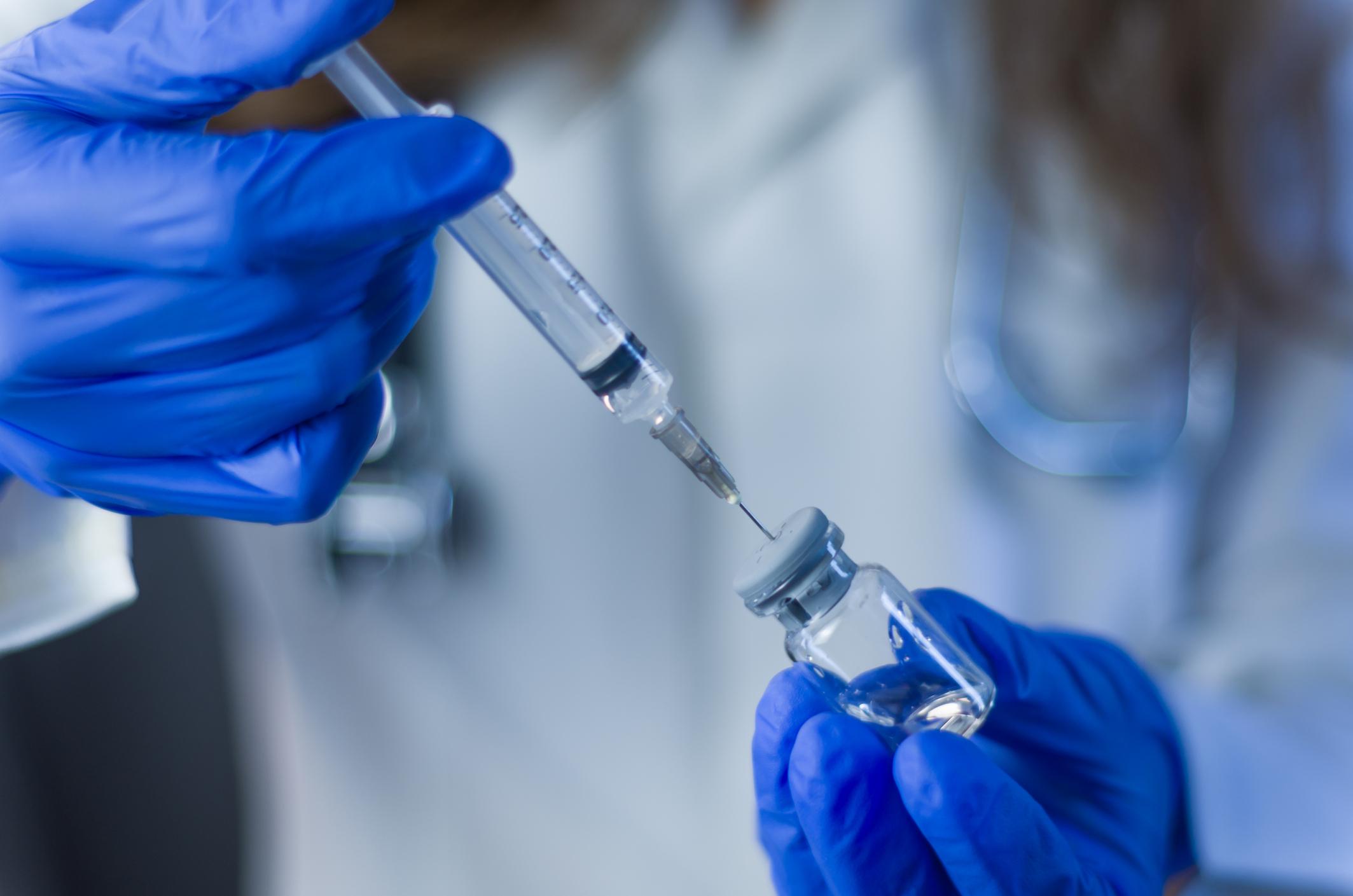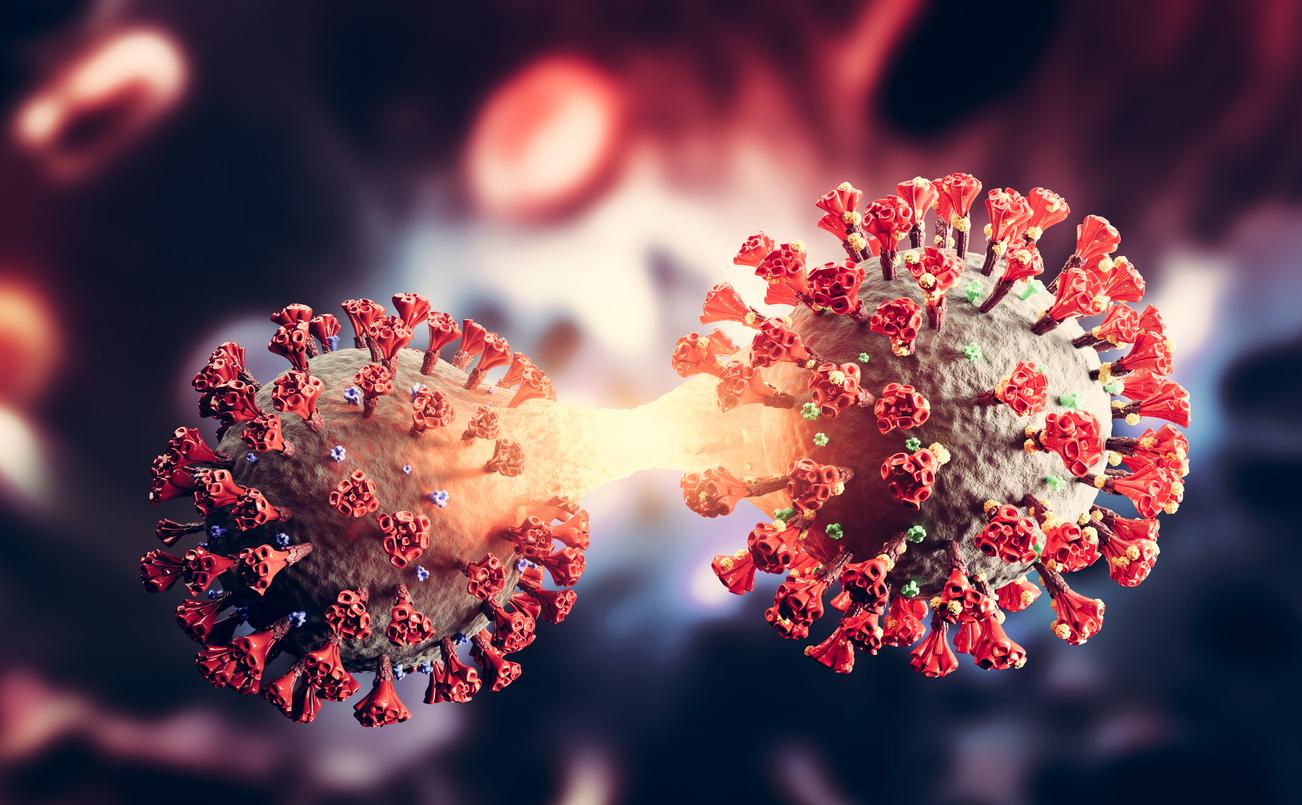SUMMARY :
- Who are the self-tests for?
- When to do a self-test?
- Where to buy a self-test?
- How much do self-tests cost?
- Is the self-test valid for the health pass?
- Are the self-tests reliable?
- Pharyngeal self-tests: how does it work?
- [EN VIDEO] Self-test: the tutorial
Visiting Vaucluse this Thursday, December 16, the Minister of Solidarity and Health, Olivier Véran, called on the French to carry out tests before joining their relatives to spend the end of year celebrations. And while the number of Covid cases remains very high and the Omicron variant could contribute to maintaining a high level of contamination, the Minister of Health particularly insisted on self-tests. “Not everyone will have a PCR or antigen testhe warned. We’re soon making a million a day, which is huge.”
Gold, “60 million French people will soon be celebrating Christmas, pharmacists and laboratories, constantly on the alert, will not test 60 million French people in one day”recalls Olivier Véran. “On the other hand, there are a lot of self-tests.”
Who are the self-tests for?
In its opinion published on December 8, where the Scientific Council gives its recommendations for the end of year celebrations, it also insists a lot on the use of self-tests. He thus invites “all the guests to be tested”, either the day before (with an antigenic test) either the same day (with a self-test), in particular “the least fragile, the youngest and the most socially active”. “The organizers of these festivities could thus very usefully organize the self-test, by buying them and making them available as soon as the participants arrive”, he further recommends.
The HAS which gave the green light on March 16 to these antigenic tests carried out on a nasal swab recommended two indications for these self-tests:
– in the private spherein asymptomatic people with more than 15 years, for example, before a meeting with relatives. The rapid antigenic test on a nasal swab should ideally be carried out the same day or, failing that, the day before the meeting. “By repeating the sample, for example 1 to 2 times a week, we increase the chances of detecting the virus at the start of the disease”, specifies the Ministry of Health, in its self-test user guide.
– as a medical indication in addition to existing screening methods in asymptomatic people over the age of 15, as part of a large-scale screening. For example in a high school, in a building…
These self-tests are not recommended for children, due to a lack of efficacy data in those under 15 years of age. In addition, the gesture can cause problems in young children (nasal irritation in particular). There is a sample allowing the swabs to be inserted less deeply (in the front part of the nostril) but it is not currently recommended by the HAS.
When to do a self-test?
The self-test can be a useful backup solution during this end-of-year holiday period according to the Scientific Council: “it allows you to know if you are contagious, and must therefore be done the same day if you plan to go to a private event where the barrier measures will not be strictly respected. For family reunions such as Christmas meals, it is recommended to limit the number of participants, to ensure that fragile people have received their booster dose, to ventilate the premises regularly, and to perform a self-test during the day. same or an antigenic test the day before or the same day of the event”, specifies the Scientific Council.
Where to buy a self-test?
The High Authority gave the green light on March 16 to these antigenic tests carried out on nasal swabs. They are available in pharmacy. On the other hand, do not look for them in the supermarket, their sale being reserved for professionals, “capable of explaining their operation”, had justified Olivier Véran at the time of their marketing in April.
How much do self-tests cost?
A self-test costs 5 euros.
The self-tests are not covered by health insuranceunlike PCR tests and conventional antigen tests.
However, employees of home services or private employers working with the elderly or disabled, as well as foster carers, are exempt from payment. To benefit from it, they must present an identity document, as well as proof of their professional status, within the limit of 10 self-tests per month.
Is the self-test valid for the health pass?
A self-test carried out alone does not make it possible to obtain a health pass: it is simply indicative. To obtain a pass, the self-test must be carried out under the supervision of a health professional: it is he who will declare the result, thus making it possible to obtain a negative test certificate.
Are the self-tests reliable?
Any positive antigen test or self-test must be confirmed by a screening PCR test.
Remember that to be marketed and obtain CE marking, a nasal or nasopharyngeal antigenic test must have sensitivity (ability to have the least amount of false negatives) greater than or equal to 80% and a specificity (ability to have the fewest false positives) of 99%.
According to the HAS, this type of test shows excellent specificity, around 99% or 100%. As with antigen tests on nasopharyngeal swabs, there is on the other hand a strong heterogeneity in sensitivity performance, especially when the person tested does not show symptoms.
Reliability also depends on the proper performance of the test : adapted swab (specific, a little wider), to be inserted into the nostril for 3 to 4 cm, and not just at the entrance to the nostril or, on the contrary, too deeply. Once the sample has been taken, the performance conditions defined in the manual must be respected (temperature, waiting time before reading the appearance of the result, etc.).
“Self-sampling can become dangerous when the swab is too deep and directed in the wrong direction,” emphasizes the Academy of Medicine. Conversely: a “too timid and superficial swabbing”may generate false negatives.
“It is therefore essential to keep in mind that a negative result does not necessarily mean that the user is not carrying the virus, further explains the Ministry of Health. This is also the case for all the tests available: no test allows in the event of a negative result to lift the barrier gestures.
the iterative character – i.e. repeated several times – the use of self-tests, however, makes it possible to increase their reliability by regularly repeating the samples.
These tests are an additional tool in the arsenal of available tests, but they are complementary to PCR tests.
Pharyngeal self-tests: how does it work?
Like nasopharyngeal antigen tests, these are rapid tests. The only difference is that the sample is taken less deep in the nostrils. The nasal swab is less invasive and less unpleasant than the nasopharyngeal swab, “it is not necessary to go so deep, but simply to 3 to 4 cm”, specified Cédric Carbonneil (HAS), on March 16. Reading being simple, it can be performed by the user.
Sampling consists of inserting a specific swab for nasal sampling in the nostril vestibule for 3 to 4 cm to the medial nasal turbinate. Some swabs have a collar to help assess the depth of their introduction. Then, a rotational movement is performed 5 times before removal of the swab. If the sampling of a second nostril is necessary, proceed in the same way in the other nostril with the same swab. It remains to read the result after 10 to 15 minutes: as for a pregnancy test, if two bands appear, the test is positive.
- If the test is negative : it is essential to continue the barrier gestures because of the false negatives.
- If the test is positive, the test must be confirmed by RT-PCR to characterize the variant and be identified by Health Insurance as part of “contact-tracing” and therefore prevent contacts. Isolation (10 days) remains essential, as for any other test.
[EN VIDEO] Self-test: the tutorial
The self-test is intended for people over 15 years old, it is not suitable for people who have symptoms or who are in contact. Ideally, it should be done several times a week.
Sources:
- Opinion of the Scientific CouncilDecember 8, 2021.
- “Covid-19: rapid tests, self-tests, what place in the screening strategy?”HAS press conference, March 16.
- Interview Olivier Véran at the Brut media, April 2, 2021.
- Ministry of Health
Read also:
- Covid-19: monitoring wastewater, soon a routine in town
- Vaccine for 5-11 year olds (Covid-19): which children are affected on December 15?
- 3rd Covid dose and antibodies: is it useful to do a serology before the booster vaccine?

















